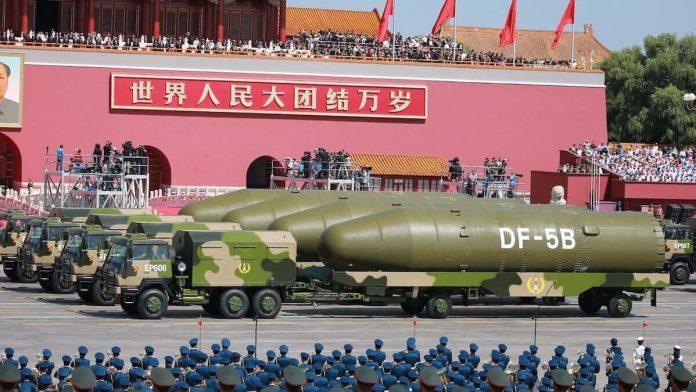Китай продовжує зміцнювати свої військові позиції, роблячи новий крок у розробці гіперзвукової зброї. Як повідомляє South China Morning Post, китайські вчені знайшли спосіб значно здешевити виробництво гіперзвукових ракет, замінивши дорогий і рідкісний вольфрам на доступнішу сталь. Це дозволить Китаю масово виробляти нове покоління зброї, готової до застосування у військових конфліктах, зокрема проти Тайваню.
Одна з основних технічних проблем у розробці гіперзвукових ракет — це екстремальна температура, яку витримує носова частина під час польоту. Вольфрам використовується через його високу температуру плавлення, але цей метал є дорогим і рідкісним. Сталь, зі своїми 1200 градусами Цельсія температури плавлення, зазвичай не витримує таких навантажень. Однак китайські науковці змогли обійти це обмеження, застосувавши інноваційний термозахисний шар із кераміки та аерогелю, який ізолює сталь від екстремального нагрівання.
За оцінками китайських дослідників, їхня ракета зможе досягати швидкості 8 Махів (9800 км/год), що ставить її в один ряд із найшвидшими існуючими гіперзвуковими системами. Використання дешевої сталі значно знизить вартість виробництва і дозволить створювати ракети масово — що критично важливо для військових операцій. З таким підходом Китай випереджає інших гравців на світовій арені, включаючи США, які поки що не досягли бажаних результатів у розробці подібної зброї.
Пекін серйозно налаштований утримати лідерство в розробці гіперзвукових ракет. Масове виробництво недорогих, але високотехнологічних ракет може надати Китаю значну перевагу в можливих конфліктах, зокрема у протистоянні з Тайванем. Водночас інші країни, зокрема Росія, вже використовували гіперзвукову зброю, зокрема в війні проти України.
Ця новина підтверджує, що Китай не просто вкладається в технології, але й робить їх економічно ефективними, що може змінити правила гри на світовій арені. Гіперзвукова зброя вже стала однією з головних загроз сучасної війни, і Китай впевнено рухається до того, щоб стати провідним гравцем у цьому сегменті.


